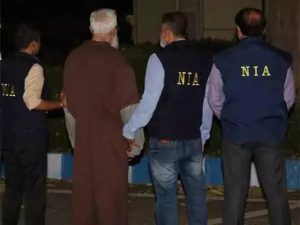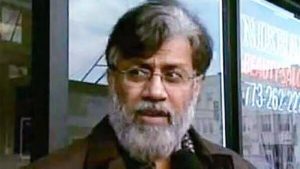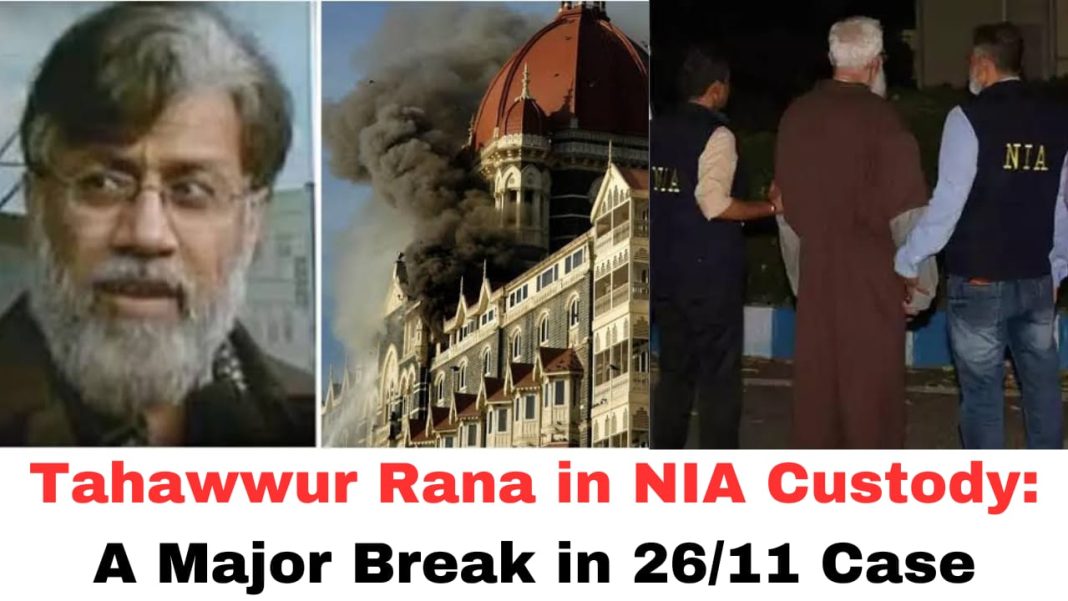Digital News Guru National Desk:
In a significant development in the pursuit of justice for the victims of the 2008 Mumbai terror attacks, Tahawwur Rana, a Pakistani-born Canadian businessman, has been extradited from the United States to India. Rana, accused of playing a key role in the planning and execution of the attacks that claimed 166 lives, arrived in New Delhi on April 10, 2025, and has been remanded to 18 days of custody with India’s National Investigation Agency (NIA).
Background: The 26/11 Mumbai Attacks
The 2008 Mumbai attacks, often referred to as 26/11, were a series of coordinated terrorist assaults carried out by ten gunmen affiliated with the Pakistan-based militant group Lashkar-e-Taiba.

Over the course of three days, the attackers targeted multiple locations across Mumbai, including the Taj Mahal Palace Hotel, Oberoi Trident Hotel, Chhatrapati Shivaji Maharaj Terminus, and the Jewish community center Nariman House. The attacks resulted in the deaths of 166 individuals and left over 300 injured.
Tahawwur Rana’s Alleged Involvement
Tahawwur Rana, a former medical officer in the Pakistan Army who later became a businessman in Chicago, is accused of facilitating the attacks by providing logistical support to his childhood friend and co-conspirator, David Coleman Headley. Headley, who conducted reconnaissance missions in Mumbai under the guise of a business trip, used Rana’s immigration consultancy firm as a cover to gather intelligence on potential targets.
While Rana was acquitted by a U.S. court in 2011 of direct involvement in the Mumbai attacks, he was convicted in a separate case for supporting a plot to attack the Danish newspaper Jyllands-Posten, which had published controversial cartoons of the Prophet Muhammad. He was sentenced to 14 years in prison in 2013 for providing material support to terrorism.
The Extradition Process
India formally requested Rana’s extradition in 2020, initiating a prolonged legal process in the United States. After exhausting all legal avenues to contest the extradition, including appeals to the U.S. Supreme Court, Rana’s transfer was approved. The extradition was publicly announced by former U.S. President Donald Trump during a joint press conference with Indian Prime Minister Narendra Modi in February 2025.
On April 9, 2025, U.S. Marshals handed over Rana to Indian authorities. A photograph released by the U.S. Department of Justice depicted Rana shackled at the waist and legs during the transfer, underscoring the gravity of the charges against him.

NIA’s Investigation and Interrogation
Upon his arrival in India, Rana was immediately taken into custody by the NIA, which has been granted 18 days to interrogate him. The agency aims to delve deeper into Rana’s connections with Lashkar-e-Taiba, his alleged ties to Pakistan’s Inter-Services Intelligence (ISI), and his role in the broader conspiracy behind the Mumbai attacks.
Investigators are particularly interested in Rana’s communications with Headley, especially intercepted conversations in which Rana allegedly praised the attackers and suggested they be honored with Pakistan’s highest military award, the Nishan-e-Haider.
International and Diplomatic Reactions
The extradition has been hailed as a diplomatic victory for India. Home Minister Amit Shah described it as a “great success” of the Modi government’s diplomacy, emphasizing India’s commitment to bringing all perpetrators of terrorism to justice.
U.S. Secretary of State Marco Rubio also expressed satisfaction with the extradition, stating, “Together, with India, we’ve long sought justice for the 166 people, including six Americans, who lost their lives in these attacks. I’m glad that day has come”.
Implications for Counterterrorism Efforts
Rana’s extradition marks a significant milestone in international counterterrorism cooperation. It underscores the importance of sustained diplomatic engagement and legal collaboration in bringing alleged terrorists to justice. The case also highlights the challenges of prosecuting individuals involved in transnational terrorist networks and the necessity of global partnerships in combating terrorism.

As the NIA continues its investigation, Rana’s testimony and any new evidence uncovered could provide critical insights into the planning and execution of the 26/11 attacks. This information may prove invaluable in preventing future terrorist activities and in holding all responsible parties accountable.
The extradition of Tahawwur Rana serves as a reminder of the enduring impact of the Mumbai attacks and the ongoing efforts required to ensure justice for the victims and their families.
You May Also Read: GAIL Seeks 26% Stake in U.S. LNG Project to Secure Long-Term Energy Supply








